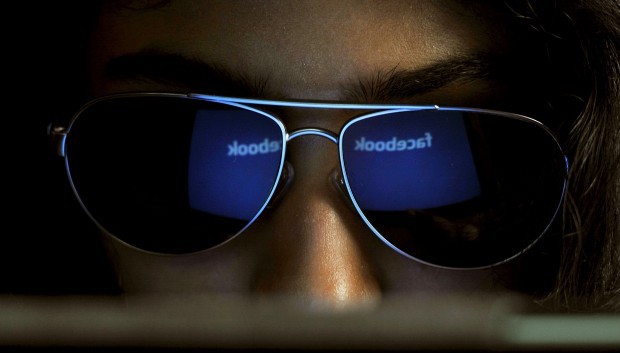In a country of approximately 200 million people, Pakistan’s Facebook users are dominated by the country’s affluent youth, with many utilizing Facebook not just to interact with others, but also to discuss politics and religion. In fact, half of all Pakistan’s Facebook users are registered as being between the ages of 18 and 24.
The social networking website is also used as an inexpensive means of informing friends and families about important events, including illnesses, weddings, anniversaries and birthdays.
Pakistan’s politicians and entertainment figures have also been keen not to allow the Facebook revolution to pass them by, establishing official Facebook pages of their own to interact with the general public.
According to Facebook Ads Manager, the number of Pakistani Facebook users is between 10.6 and 11.8 million. Of this figure, 7.4 to 8.2 million are men, while the rest—3 to 3.4 million—are women.
The latest figures reveal that 2.3 to 2.5 million are listed as single, while between 1 and 1.2 million people are listed as either married, engaged or in a relationship. Facebook Ads Manager also indicates that more than half of Pakistan’s Facebook users come from an affluent background.
“Facebook has transformed the way Pakistani people organize their social activities and life,” BBC Urdu’s Asif Farooqi told Asharq Al-Awsat.
“Pakistan’s urban middle class tend to use Facebook for a variety of reasons, from posting information about a death in the family to informing friends about a daughter’s engagement or a forthcoming visit to London,” the BBC producer added.
Other media experts affirm that in Pakistan, like in many other places around the world, the rise of Facebook and other forms of social media has brought people together in loose groups, both political and social.
From tweeting for blood donations to announcing art exhibitions to protesting drone attacks, these are the cyber equivalents of traditional neighborhood meetups. “Facebook, Twitter and texting are now a predominant medium for mobilization around political and social issues, especially in urban areas,” says another media expert based in Islamabad.
Each and every political party in Islamabad has a Facebook page dedicated to its activities and for attracting new followers. For instance, there are thousands of followers of political party Jamat-e-Islami’s Facebook account. The same is true all all the other major parties.
Even organizations banned by the government for their involvement in sectarian violence have Facebook accounts. Not surprisingly, they also have thousands of followers.
Social media has also opened up avenues for obscure groups with little public standing. Take, for instance, the case of the “Stalin Society of Pakistan.” This organization has a Facebook account, though most people have never heard of it or its activities. Even though socialist groups generally evaporated from the political scene after the collapse of Soviet Union, the Stalin Society of Pakistan still claims on Facebook that it stands for communist revolution in Pakistan.
Pakistani media experts told Asharq Al-Awsat that Facebook has become one of the major channels of communication between expatriate Pakistanis living in the Gulf states, European countries and the US and their families back home.
Housewife Ayesha Khan told Asharq Al-Awsat that Facebook helps her keep in touch with her brother, who has lived in the Australian city of Melbourne for the past ten years. Earlier this year, her niece got engaged to a member of an expatriate Pakistani family. She could not afford to visit Australia to attend the event, so she asked her brother to make a video and post it on the Facebook. “The whole family watched the video and felt as if they were participating in [the party],” says Mrs Khan.
Pakistan’s youth have their own take on the phenomenon. “Facebook allows youngsters to connect with the world outside their university dorms, stay in touch with family, post interesting news articles, and share their lives with their friends,” said Naheed Hameed, a young blogger associated with a local newspaper.
Some experts are of the opinion that this has changed the way youngsters interact with each other. “Regular interaction among youth in the old days meant long absences from home, spending evenings in a café,” said Tanzeel Farooq, a teacher in Islamabad. “This is changing now. The youngsters spend hours in their rooms glued to their PCs and laptops.”
Some of Pakistan’s political parties have made an attempt to exploit this Facebook “addiction” to spread their political messages. Foremost among these political parties is Pakistan Tehrik-e-Insaf (PTI), whose leader, cricketer-turned politician Imran Khan, is responsible for the creation of a veritable army of online activists, according to many political analysts.
Before the May 2013 parliamentary elections, PTI carried out a country-wide campaign to boost its membership via its Facebook page. However, as access to the Internet is not widespread in rural areas, Khan’s popularity has remained confined largely to the urban middle classes, who are mostly likely to be regular users of social media networks like Facebook.
As a result, “in the cities where Internet availability is high, Imran Khan’s party performed really well in the May parliamentary elections,” said Asif Farooque.
However, just like everywhere else, in today’s Pakistan, online activism does not automatically translate into changes on the ground: some Facebook campaigns by political parties inviting people to protest against the government have attracted only small numbers of people.

